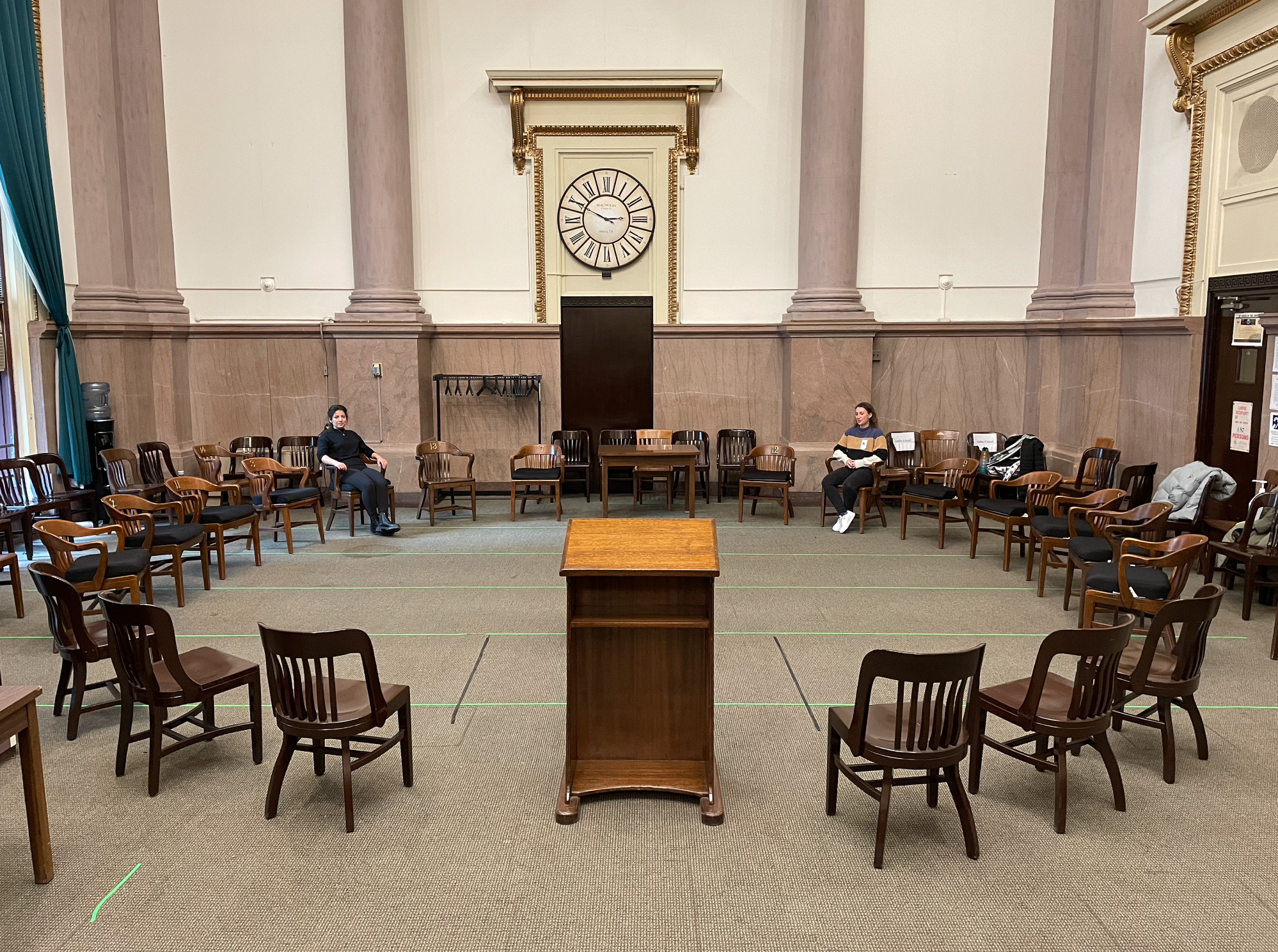Re-designing the Philadelphia Court of Common Pleas
the challenge
COVID prompted the Judges of the Philadelphia Court of Common Pleas to radically rethink their courtroom layouts for the first time in modern memory. Our team was invited to co-design this experience.
The solution
Developed a series of actionable recommendations (physical and digital) to be implemented in the Philadelphia Court of Common Pleas.
The Goal
Reduce physical and emotional barriers to foster respect for the law and promote just verdicts at the Philadelphia Court of Common Pleas.
Role
Client Lead & UX Researcher in collaboration with Madeline Warshaw, Felix Teng and Jessica Ramses.
Sector
Public - The Judicial Branch
Observational Research
In order to understand how to reduce these barriers we visited several courtrooms and observed over 60 hours of individual behaviors in the space. We toured every corner of Philadelphia City Hall and immersed ourselves in the experience of going to court.
Compiling our Research
Once the initial research was completed we gathered as a team to do affinity mapping and cluster our insights.
User Interviews
In order to define the problem we needed to hear the voices of the people that encounter these spaces on a daily basis. Through quantitative and qualitative methods we reached out to the community and spoke to more than 50 people.
Organizing our Insights
Our team was getting closer to defining the need statement, it was crucial that we organized and understood all the insights we had found from the interviews, survey’s, direct observational visits and our secondary research. As a team we had several sessions in order to synthesize the findings into four main buckets.
Prototyping - Understanding the Layout
Once we had defined the problem, we were ready to develop and ideate solutions. We started the process by looking back and looking forward at courtroom design innovation happening around the world specially in collaborative law and restorative justice movements. Most often employed in family courts and schools, we spoke with individuals from Delaware to Amsterdam to understand how could these equitable, circular design modalities be relevant to naturally adversarial civil court hearings?
Understanding different seating perspectives with the team to choose the most optimized layout arrangement.
We tested our selected layout during a mock trial hosted by Honorable Judge Tsai at Philadelphia City Hall. We recruited lawyers, legal aids, and volunteer jurors to participate. Halfway through the trial, we went on recess and changed the court back to its typical COVID layout for comparison. At the end of the session we talked to the participants to understand their perspective and experience with the adjustments to the layout. Overall we found that participants preferred our new proposed layout because they felt it to be more spacious, their focus increased and their role felt more important.
Changing everything that’s not working in the courts at once would be great, but it isn’t realistic. What if you could immediately change the space you have, without a large time or financial investment, to better achieve the goals of justice? That’s the door that our proposed solution unlocks. The Focus Forum layout, pain points of the court experience don’t have to be immediately eliminated, because they have been de-emphasized. And what has been re-centered in their absence?
Attention on the the legal process itself. Our proposed changes don’t overhaul the legal system, they streamline it, doubling down on our collective values of respect, justice, attention and order. By welcoming the community into the courts and improving navigation, we make the law a more accessible and important part of individuals' lives. The courtroom of the future compels greater respect for the law by focusing us on what really matters: the pursuit of truth. The best solutions are sometimes as simple as rearranging already existing furniture.
Form: Introduce of semi-circular Focus Forum layout that is spacious, inclusive and attention-centering.
Honor: Prioritize the role of Judge and Jury as partners in reaching just verdicts
Safety: Open up the space to be more spacious and amenable to COVID restrictions.
What is next?
We are very thankful with Judge Anders and Judge Tsai, who allowed us to enter their space and co-design a better future for courts in America. We aim to share this research with law professionals, Courts in the US and abroad and experts to inspire better and more equitable court spaces.
In August of 2022, Madeline and I attended the Academic Design Management Conference at OCAD University in Toronto to present a research paper based on the findings from this work. We presented our published paper: Rethinking American Courtroom Design: Leveraging Co–Creation to Create a New Legal Experience in Philadelphia. Read our paper here.
Huge shout out to our mentors Mikael Avery and Sarah Rottenberg for enabling this project!
Learning
Implementing a solution that is feasible while utilizing existing resources goes further and has more impact.

























